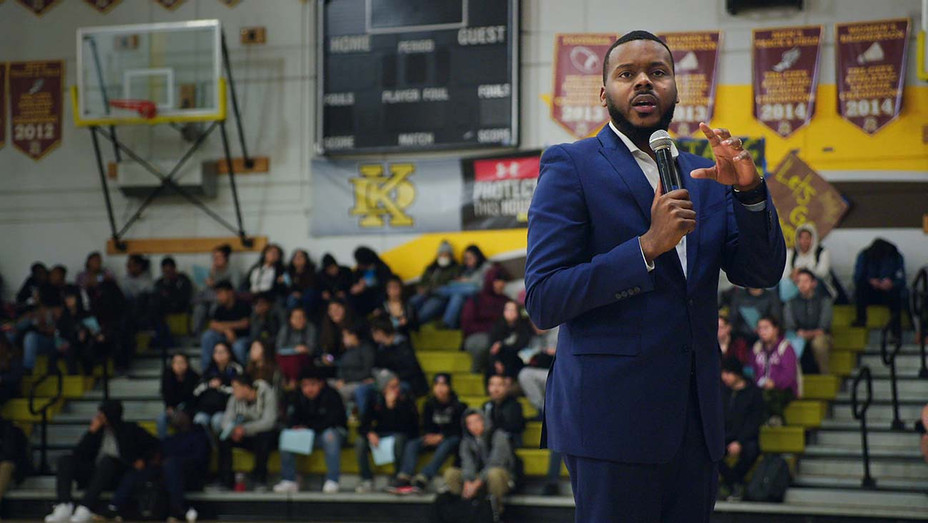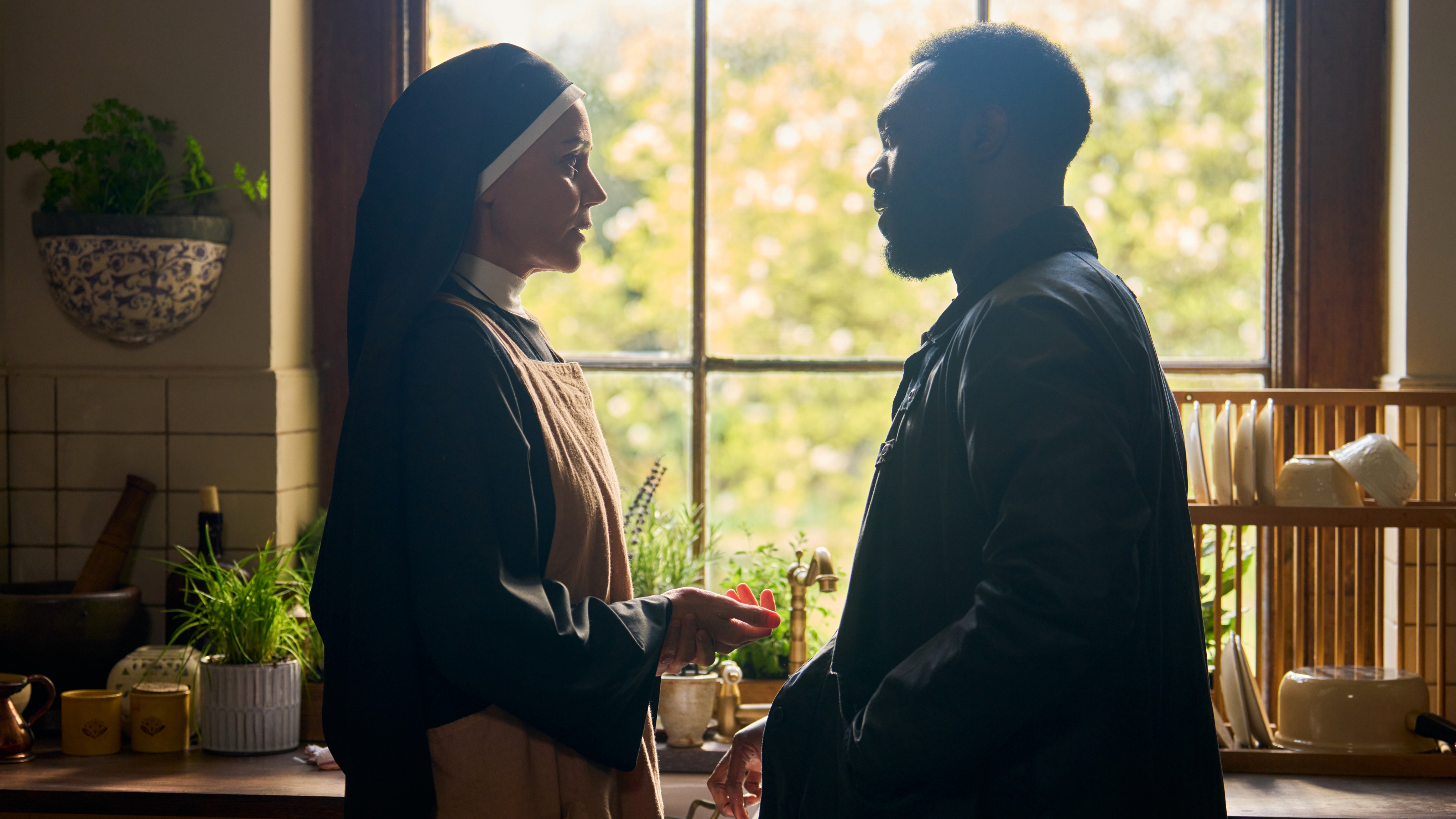What to Watch Verdict
Michael Tubbs cuts an undeniably inspiring figure as a young, inventive politician, but this documentary elides the nuts and bolts of whether his policies have lasting, measurable effects.
Pros
- +
🇺🇸 Tubbs' story will inspire anyone looking for a real-life Leslie Knope.
- +
🇺🇸 Levin's documentary tenderly examines the obstacles and cultural forces working against his incredible accomplishments.
Cons
- -
🇺🇸 The movie's time period fails to include the long-term impact of his experimental policies.
After decades of politicians weaponizing terminology against the downtrodden, poverty-stricken and marginalized, Mayor Michael Tubbs Jr. is using the actual principles behind some of that language for good: Stockton, California is slowly becoming a test site, even an “experiment,” to revive and reinvent its social and economic opportunities for citizens unsupported for far too long.
In the new documentary Stockton on My Mind, director Marc Levin profiles the first years of the city’s now 30-year-old mayor not only as he wrestles to overcome youth, inexperience, and upbringing, but fights for a future that looks beyond the boundaries of his hometown to an increasingly politically polarized national landscape.
Tubbs, a Stockton local raised with his father behind bars, returned home after graduating from Stanford to become the city’s youngest ever council member at 22, and four years later, its youngest ever mayor (and first African-American). Where Kevin Gordon’s 2014 documentary True Son chronicled his councilman campaign, Levin’s film follows him through the policymaking of being mayor in a city described as “one of the poorest, most violent, least literate in the nation.” After legacy programs failed to make desired changes in the lives and livelihoods of his constituents, Tubbs invited his staff members to pitch pie-in-the-sky ideas, like Universal Basic Income, which they subsequently rolled out in piecemeal fashion to measure their efficacy.
Another of their ideas was to launch a “Stockton Scholars” program guaranteeing funds to high school graduates, which, like UBI, is supported not by taxpayer dollars but private donors such as future Snapchat co-founder Evan Spiegel, a classmate of Tubbs’. Levin loosely follows both the implementation of these programs and their opposition, some of which seems born of the same dissent fomenting across the country to minority-focused (or more accurately, the perception of minority-focused) leadership and policy. But given the novelty of these programs, it’s difficult to more fully evaluate how much good they are doing, and what may be driving Tubbs’ opponents except for political divisions and/or racial animosity.
Certainly as a young person is his late twenties with a staff whose members are the same age, Tubbs understands the power and importance of social media and other nontraditional forums, for example, to communicate to constituents. But with individuals objecting to social programs they seem not to know or understand are not taxpayer funded, the question becomes whether information isn’t being successfully shared with the public, or it’s being obscured, or ignored.
Levin mentions but doesn’t explore a nonstarter recall campaign initiated in Stockton - but is there a different approach locals or other politicians think would work better to enable citizens to read, achieve and progress socioeconomically? The film focuses on his groundbreaking policymaking, but doesn’t provide a lot of context to why these haven’t been, wouldn’t or shouldn’t be attempted elsewhere.
What becomes more powerful - perhaps to the detriment of some of these other questions - is the way that the Stockton community rallies around Tubbs. Said community includes Michael’s father’s former cellmate who became an advocate for restorative justice, and other local leaders and teachers championing a more progressive platform for generations of children and young adults in dire need of the support systems he’s building. Whether or not Tubbs’ ability is yet proven as a legislator, his capacity for inspiring people to action is undeniable, and his commitment to doing the work needed is palpably moving. As he speaks to a local graduating class in the film’s final scenes, he encourages perseverance, and resilience: “they tried to bury you, but they didn’t know you were a seed,” he says.
Ultimately, Levin’s documentary offers a welcome dose of hope at a time of often oppressive despair, and pays tribute to a level of commitment and dedication to one’s hometown (or city, state or country) you can’t help but wish existed, or was visible, everywhere. It also gets into the principles, but slightly fewer of the practical realities of governing, in terms both of the political landscape of “doing good” in our current climate, and the actual impact of making those efforts in not just weeks and months but years to come. But until there’s a Michael Tubbs in every district fighting not for political loyalties or corporate partnerships, but for the uplift and well-being of all of its people, fairly and equally, Stockton on My Mind manages to do the same thing as a film that he does as a politician: plant a seed for a promising future.
Todd Gilchrist is a Los Angeles-based film critic and entertainment journalist with more than 20 years’ experience for dozens of print and online outlets, including Variety, The Hollywood Reporter, Entertainment Weekly and Fangoria. An obsessive soundtrack collector, sneaker aficionado and member of the Los Angeles Film Critics Association, Todd currently lives in Silverlake, California with his amazing wife Julie, two cats Beatrix and Biscuit, and several thousand books, vinyl records and Blu-rays.












